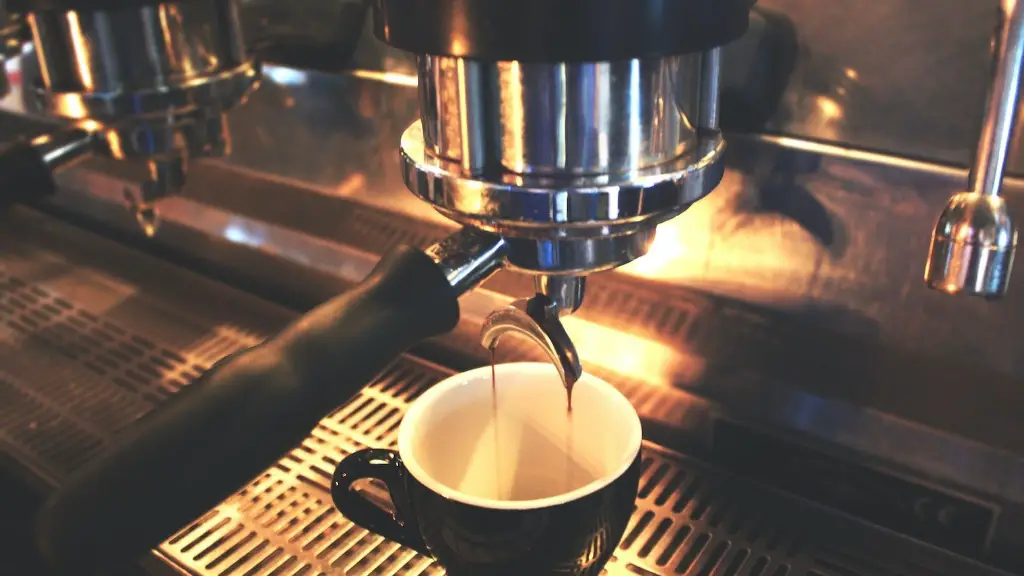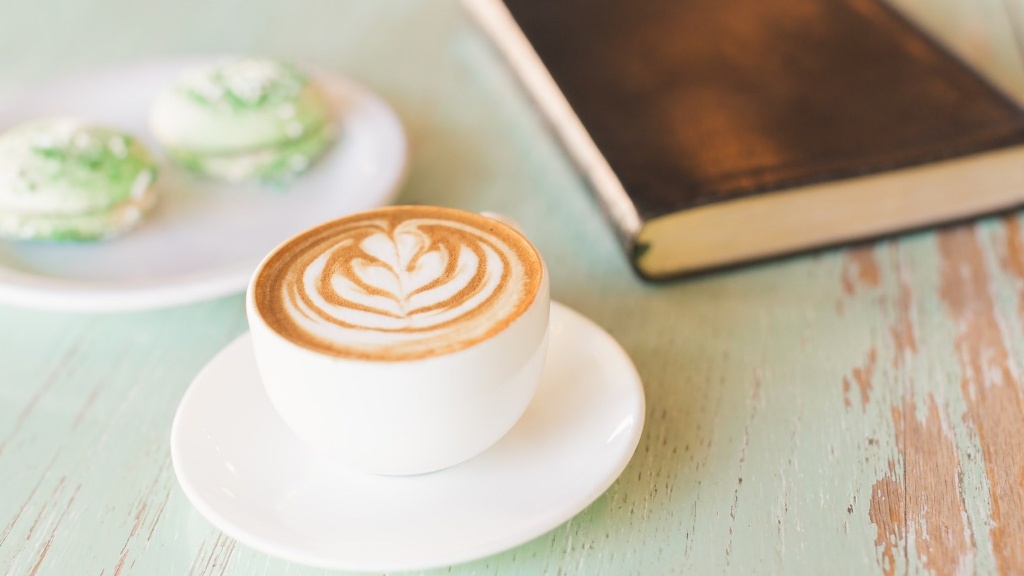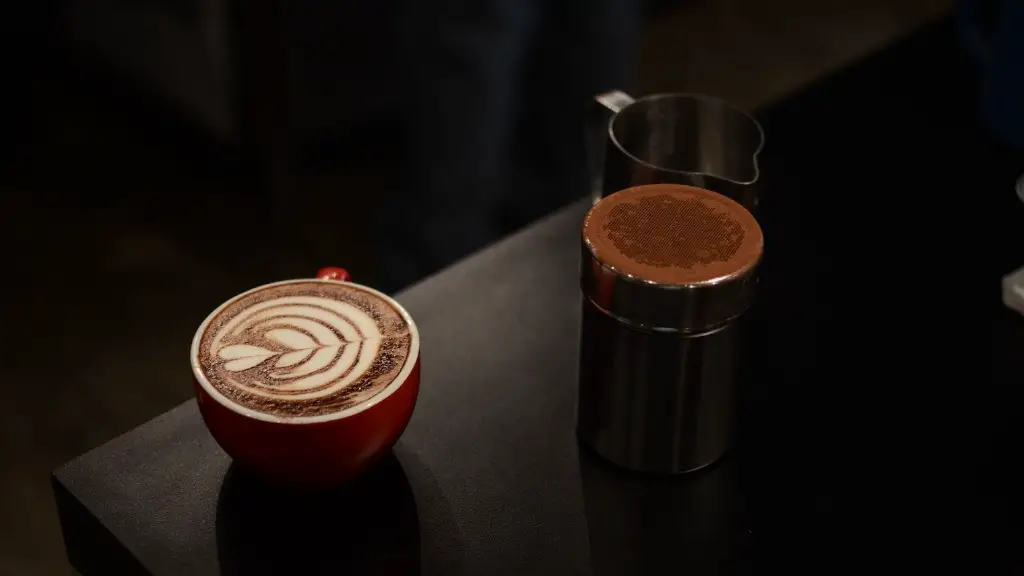Dietary Restrictions During Fast
Many religious and cultural celebrations feature specific restrictions on what can be eaten or drunk during hours of fasting, often practiced before a special event or as a general spiritual practice. Coffee is a frequent point of debate, as it is consumed by many people as an occasional indulgence, regular drink or even a necessary part of their daily routine.
Coffee is not a wholly replenishing food or beverage item. That is, it does not provide essential vitamins, minerals, and proteins needed to maintain the body. However, the caffeine it contains is known to have stimulating effects and can provide an energy boost. This has caused some practitioners to question whether drinking coffee during a fast is permissible, or simply disregards the spirit of the occasion.
Culture and Tradition
Different cultures and traditions may have vastly different rules on what can be consumed during a fast. Generally, many religious rules prefer that only water be drunk, while other traditions also allow milk, light food, tea, and some flavorings. Coffee often falls in a strange middle ground. Some communities allow it, while others forbid it, often with little clear rhyme or reason.
That said, communities which observe fasting tend to see it as an important part of their spiritual practice, and most would probably agree that the spirit of fasting is a meaningful part of its importance. Thus, it’s important to observe the rules of one’s tradition whenever possible, whether for cultural, spiritual, or personal reasons.
Personal Preferences
Aside from the cultural considerations, some people choose to observe a fast for personal reasons. These fasts may differ from one’s cultural or spiritual tradition. Depending on the person’s motivation, they might choose to fast in a more extreme way, by not drinking coffee. Many people believe that drinking coffee during a fast detracts from the spiritual nature of the practice.
In many cases, those who choose to fast for personal reasons also have a strong personal opinion on drinking coffee during a fast. Some may choose to do so, while others may choose not to, depending on their beliefs. Generally, if someone is fasting for spiritual reasons, they might choose not to drink coffee.
Caffeine as An Alternative
For those who wish to partake in a fast without drinking coffee, there are other options available. Caffeine in other forms, such as energy drinks, is often permissible during a fast. Some practitioners might see energy drinks as equally inappropriate for a fast, depending on how seriously they are taking the experience.
Alternatively, some practitioners may choose to drink decaffeinated coffee, or other drinks such as herbal teas. It’s important to respect the individual’s choice here, as no two fasts are ever alike.
Hydration During Fast
In some cases, people may choose to fast for its health benefits, such as to detoxify the body. During these fasts, it is important to stay hydrated, as this is essential to maintaining the body’s essential functions. Drinking coffee during a fast can be a form of hydration, as it contains a certain amount of water.
That said, many health experts recommend instead drinking plain water during fasts, as it is the best way to rehydrate the body and flush out toxins. Drinking coffee, on the other hand, can add certain chemicals which may not be beneficial to one’s health.
Nutritional Benefits
Those looking for nutritional or other health benefits from fasting may choose to avoid coffee altogether, as it does not provide much in terms of nutrition. While it is true that coffee has some health benefits, from its antioxidant content to its effects on mental alertness, it is not likely to provide the same level of nutrition and support as a wholesome meal.
Essentially, coffee will not provide the same levels of vitamins and minerals that would come from a nutritious meal. This might be important for those looking to fast for its health benefits to keep in mind, as drinking coffee may not provide the same advantages as abstaining from food altogether.
Medical Concerns
For those who have underlying medical conditions, it is definitely important to find out whether it is safe to fast at all, let alone whether drinking coffee is advisable. Many medical conditions can be exacerbated by fasting, and it is always best to consult a medical professional first.
In the end, it is always best to consult a medical doctor or faith leader if one is uncertain about drinking coffee during a fast. Such people can provide much-needed guidance about the physical and spiritual implications of consuming coffee during a period of abstinence.
Spirituality of Fasting
Many cultures and traditions see fasting as an important spiritual practice. Thus, it is important to consider the spiritual implications of drinking coffee during a fast. On a spiritual level, drinking coffee may be seen as taking away from the importance of the experience.
That said, it is important to respect the beliefs and preferences of the individual when it comes to religious fasting. Ultimately, the individual should take the time to consider the implications of consuming coffee during a fast and make the decision that best reflects their own spiritual beliefs.
Mental Alertness
Those who practice fasting, whether for spiritual or health reasons, will often feel tired and lethargic as the period of abstinence continues. In some cases, drinking coffee may be seen as an alternative to other energy-replenishing activities, such as sleeping.
On the other hand, drinking coffee during a fast can have a detrimental effect on the body’s ability to detoxify and reset itself. The caffeine in coffee is a stimulant, and can make it difficult to relax and recharge during a period of fasting.
Moreover, it can be difficult to sort out what is an appropriate level of mental alertness. It may be wise to practice other methods of relaxation and rest during a fast, such as yoga or meditation.
Calorie Intake
While not strictly a form of food, it is important to consider the calorie content of coffee. Coffee contains calories, though the exact amount depends on how it is made. Adding ingredients such as milk, creamer, and sugar will increase the calorie content of the drink, and these additional calories can add up over the course of a fast.
If the goal of the fast is to reduce calorie intake, then adding coffee to the mix can be counter-productive. For those who want to achieve the best results from a fast, it’s probably best to avoid adding any extra calories, including those from coffee.
Coffee After Fasting
Coffee may be an appropriate way to break a fast, depending on the individual’s beliefs. In some cases, coffee can help to replenish carbohydrates, or as a means to break a fast slowly and gently.
However, if one wishes to experience the full benefits of a fast, then it is probably best to wait until the fast is over before drinking coffee. Drinking coffee after a fast can be beneficial, as it can provide a pleasant pick-me-up, as well as a variety of health benefits.
Cultural Significance
Coffee may also factor into the culture and traditions of a faith or community. For instance, many Arab cultures will serve coffee after a fast as a symbolic gesture, representing hospitality, friendship, and many other virtues and values.
Coffee is also an important part of many other cultural traditions, and there may be an element of demonstrating respect for these customs when consuming coffee during or after a fast. Thus, it is important to consider not just the health and spiritual implications of drinking coffee during a fast, but also the role that coffee might play in an individual’s cultural and social life.
Caffeine Consumption Guidelines
It is important to be aware of the amount of caffeine consumption during a fast, as some of its effects can be quite powerful. Generally, caffeine consumption should be limited to a few cups of coffee or tea a day.
If one wishes to drink coffee during the fasting period, then the amount consumed should be monitored. Avoiding the consumption of other caffeine-containing products, such as energy drinks, may also be advisable if wishing to preserve the health benefits of a fast.
Personal Choice
In the end, it is up to the individual to decide whether drinking coffee during a fast is appropriate or not. Some will see no problem with it, while others prefer to abstain. Ultimately, it is up to the individual to make the most appropriate decision for their situation.
When deciding whether to drink coffee during a fast, it is important to take into consideration not only the health and spiritual implications but also the cultural and social aspects of the practice. By considering all of these factors, one can make an informed decision about whether drinking coffee during a fast is the right choice for them.



